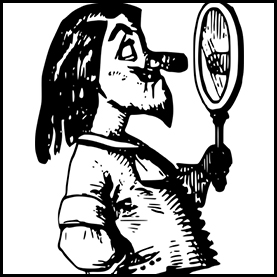 The ego is our self-image, not our true self. It is characterized by labels, masks, images, and judgments. The true self is the field of possibilities, creativity, intentions, and power. We can go beyond the ego through self-awareness – awareness of our thoughts, feelings, behaviors, and speech. ~ Deepak Chopra
The ego is our self-image, not our true self. It is characterized by labels, masks, images, and judgments. The true self is the field of possibilities, creativity, intentions, and power. We can go beyond the ego through self-awareness – awareness of our thoughts, feelings, behaviors, and speech. ~ Deepak Chopra
All this sounds useful and true, but think again! A dear friend of mine, an Enneagram teacher and a highly developed person both spiritually and psychologically, said this to me recently: “I studied the Enneagram deeply for 12 years, and while I love the Enneagram and what it has done for me spiritually and psychologically, I recently became aware that in this process, I began to believe that my ego (and, as a result, I) were intrinsically bad. Now I have to work on that – not feeling like I am fundamentally bad in some way about my ego.”
What is the ego?
Psychologically speaking, the concept of ego is most apparent in the work of Sigmund Freud, who claimed, wrongly or rightly, that the ego – what we most think of as core personality – is the mediator between our id or unconscious desires (for better or worse) and our super-ego, the super-parent inside us all. In transactional analysis terms, this superego would be akin to our internal critical parent.
In lay-psychology, the term ego has become associated with extreme negativity, with words such as egotism, conceit, self-centeredness, arrogance, and selfishness among them. No wonder many people think the ego is “bad.”
Spiritually speaking, the “ego” is often perceived as that which keeps us from our connection to the greater connection to the spirit and/or the soul. And this may be true! But can we/should we disown our ego as a path to spiritual development?
Is the ego really so bad?
Try to imagine what it would be like if we actually were born ego-less (aka personality-less). When my son was five years-old, he came home from kindergarten one day and said this: “Mom, there’s a girl in my class named Hannah, and she has no personality. It’s like there’s nobody there and I can’t tell who she is.” When I asked him if she felt spiritual to him – my son has been in the spiritual zone since birth, possibly before – he responded with a clear “No!”
Here are the questions I ponder:
Without a personality, who are we?
If we weren’t supposed to have a personality, then why do we all seem to have one?
Without a personality, there are no defenses and what would people do without at least some defenses?
If we disown our ego as a path to spiritual development, isn’t this a “spiritual bypass,” where we can wreak havoc on others, yet act as if we are somehow all good and all knowing?
Some suggestions for working with others
Working with the issue of the ego both personally and professionally, here are two of the ways I have found to be constructive and productive:
Try this
Using language such as “relaxing” or “loosening” the ego’s hold on us. This is a great relief to most people and reduces the implication that the ego is somehow bad and needs to be eradicated, almost surgically!
Example | I created an exercise that uses the ego structure’s thirsty search for a particular thing and the ego structure’s complete avoidance of something else – for example the One’s search for perfection and avoidance of mistakes or the Three’s search for success and avoidance of failure. In the process, the person examines the benefits and costs of the particular type-based search, then the benefits and costs of the specific type-based avoidance. After this, the following question is asked: What if you could relax, not get rid of, your search and avoidance? What would that be like? There are follow-on steps but this gives you the idea.
Try not to do this
Try to not use language that describes the ego or any of the types in a derogatory way; in addition, catch others who may do this and suggest alternatives that do not make themselves or anyone else “bad.”
Example | Before every Enneagram program I do, I ask myself what type I am most liking right now, what type I am least liking right now, and what do my reactions in both cases say about me (and not about the type) and my areas for development. However we are feeling and thinking about different types (or the ego), it will show up in some form as we explain the system to others. It may appear in the descriptions we give of the types or in the examples we use to illustrate type behavior. Our own reactions to different types can be read through our body language and even our voice tone when we are talking about the different types.

Comments are closed.